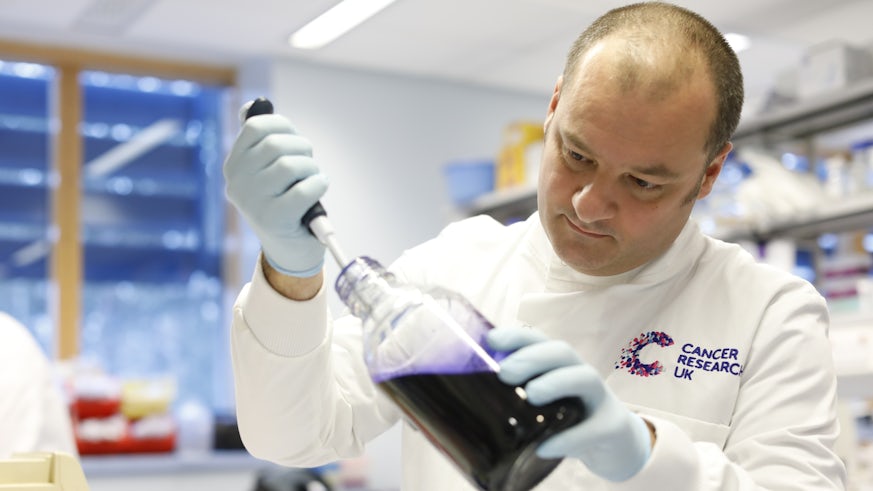Funding boost for cancer-killing ‘smart’ viruses
1 November 2019

Scientists at Cardiff University have been awarded nearly £1.4m in funding by Cancer Research UK to support the development of cancer-killing viruses.
“Oncolytic” viruses are widely seen as the next breakthrough in cancer treatment.
They destroy cancer cells but leave healthy cells unaffected.
Dr Alan Parker, from the university’s School of Medicine, said the funding would help towards moving the research “from bench to bedside”.
“Reprogrammed viruses replicate many thousands of times over inside infected cells, filling them with virus before bursting the cell, releasing thousands more copies of therapeutic viruses. These viruses then infect surrounding tumour cells, repeating and amplifying the process,” he said.
“Viruses haven’t evolved to infect and kill cancer cells - unfortunately they infect healthy cells, making us ill in the process. Our research has focused on generating ‘smart viruses’ that can discriminate between cancerous and healthy cells.
“Our next challenge is to engineer the virus to make it even more potent and deliver this to clinical trials. This funding from Cancer Research UK will accelerate this process and help us to deliver these exciting new therapies to cancer patients sooner.”
Last May researchers announced they had successfully trained a virus to recognise and destroy ovarian cancer cells.
Dr Alex Pemberton, Cancer Research UK's head of therapeutic discovery funding, said: “Reprogramming viruses to target cancer cells is an exciting area of cancer research and has the potential to treat ovarian and breast cancer, and others that are harder to treat like pancreatic and oesophageal.
“This project is at the forefront of research using viruses to treat cancer, and is a stepping stone to developing potentially life-saving treatments that could change the outlook for hard to treat cancers, which have seen little improvement for decades.”
Share this story
Our interdisciplinary themes range from laboratory investigation to clinical practice, in hospital and community settings.



